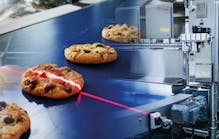Q: How would you characterize the current state of the Industrial Internet of Things (IIoT) industry?
A: We are still in the very early stages of understanding the full potential of the IIoT, but we’re also starting to see an accelerated rate of early adoption. As the costs of sensors, platforms and analytics continue to rapidly decline, more and more firms are starting to invest in either buying or developing their own capabilities enabled by IIoT solutions. There are a number of key use cases that are showing clear benefits for early adopters, including predictive maintenance, supply chain automation, inventory management and remote service management. Almost every company we speak with today is involved in piloting IIoT projects and evaluating the potential of those projects to scale. Industry leaders realize that although some of these projects or use cases may not provide value in the immediate term, it is absolutely critical for them to experiment, learn, gain IIoT experience and develop a clear perspective on their own IIoT strategy. Otherwise, they will be rapidly left behind by more digitally savvy competitors.
We’re also seeing a shift in business models enabled by machine connectivity and predictive insights. Technology companies like Augury are bringing the SaaS (software as a service) model to the industrial world, and provide diagnostics and insights as a subscription service. These new models are helping to shift the industry mindset from a capex to an opex perspective. A number of large industrial companies are already adopting the as-a-service models, including Michelin Tires, Rolls Royce and ThyssenKrupp.
Q: How has the combination of the IIoT and artificial intelligence (AI) impacted the predictive maintenance industry?
A: The IIoT has made predictive maintenance accessible to industrial companies of almost any size. Not only are initial investments much lower, but the certainty in the ROI of those investments is becoming much clearer as companies adopt IIoT technology. From an industrial customer standpoint, IIoT has enabled predictive maintenance (PdM) to scale. PdM has scaled not only the scope of a PdM program (e.g., more sensors means more PdM coverage across a plant), it has also scaled the effectiveness of such programs. For example, a wide base of plant operators, maintenance professionals and reliability engineers are given simpler, more accurate and more advance notice of potential problems within a plant. This has been enabled by recent advances in sensor technology (to collect new types of data) and rapid development of machine learning and new data science approaches to transform raw data into useful insights.
Q: What is the top misconception you run into when it comes to predictive maintenance?
A: The top misconception associated with PdM is that it does not require a cultural change within an organization to be fully adopted. Predictive maintenance implies doing maintenance only when needed, based on the condition of an asset and its predicted effect on the performance of the process. This is very different than how the vast majority of plants operate today — mainly because PdM was less accessible until very recently. Augury helps its customers structure a PdM program such that it is successfully adopted within the context of the individual organization. This includes proper training, onboarding, support and even periodic business reviews to make sure the organization is on track to hit its goals. Getting it right from day one combined with quick wins builds the credibility within an organization necessary to encourage adoption and consequently maximizes the value of a PdM program.
Q : Can you describe the work you are currently doing with PSG?
A: Augury’s technology stack and experience in building and going to market with subscription-based IIoT products are very well positioned to help OEMs transform and prepare for a digital future. We’re working with a number of OEMs of rotating equipment, including PSG and Grundfos to bring new products, new business models and a new mindset to the market. With PSG, we have partnered to launch SafeGuard, a predictive analytics platform for Griswold pumps.
Q: What’s next for the predictive maintenance industry?
Today, predictive maintenance is emerging as the most actionable and proven use case for the IIoT. As more and more organizations embrace a digital strategy, reliability based on predictive technologies will become the standard for how firms operate in the future.
Another thing we’re already seeing is the convergence between the predictive approaches to the way we maintain, operate and deliver business results with industrial machines. Almost every manufacturing segment is experiencing an increasing need for operational flexibility and efficiency to serve the rapidly evolving market demand. By combining machine-based diagnostic insights with operational and performance-based factory insights, we will help create that type of efficiency and flexibility at a faster rate than ever before. Augury is already working with a number of customers to integrate machine health and diagnostics with operational insights.



